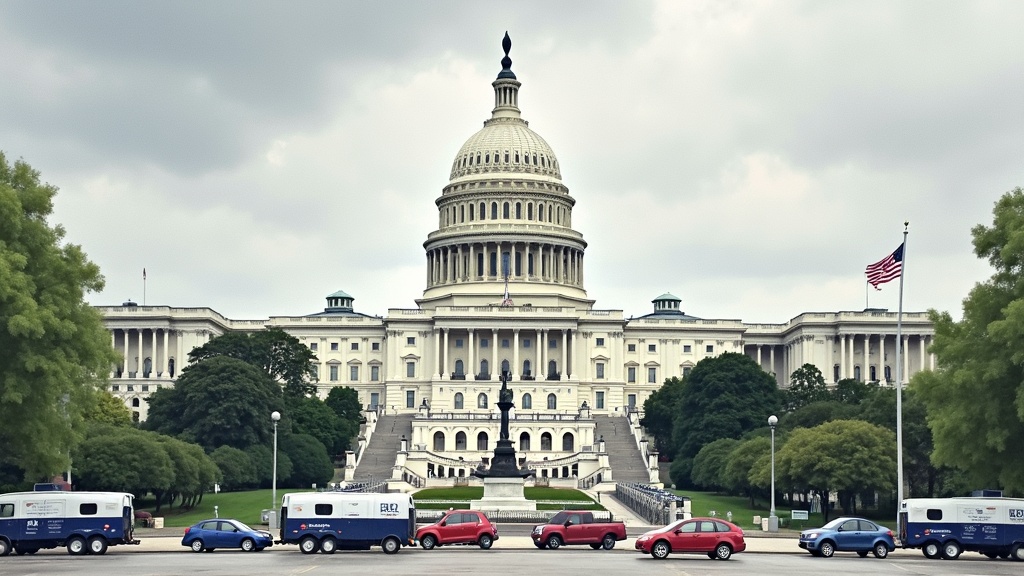Introduction
Federal investigations hold a different kind of weight compared to local or state cases. Not every crime grabs federal attention, but when it does, the United States government has recognized that it impacts national or international interests. Common types of federal investigations means probing violations of U.S. law, crimes that cross state or national borders, or any offense striking at the core of federal programs and agencies. These cases often get very complex, requiring teamwork among multiple agencies and regularly capturing headlines because the stakes are high.

Table of Contents
What Makes a Federal Investigation?
Federal investigations come into play when certain rules get broken — specifically, federal laws found in the U.S. Code. These typically involve significant issues: crimes that cross state lines, work through the mail, touch government interests, or happen on federal property. Crimes involving national security, drug trafficking, weapons smuggling, or large financial scams also quickly catch the federal spotlight.
When a crime falls under federal jurisdiction, agencies like the FBI, DEA, and Homeland Security step up. These teams bring stronger resources, broader subpoena powers, and a mission that stretches far beyond any single community. Once such agencies get tipped off to a potential federal crime, they launch an investigation to track down who did what, gather evidence, and determine if the case heads to federal court.
Major Federal Agencies Behind Investigations
Federal cases aren’t only handled by the FBI. Depending on the type of crime, you might see the DEA investigating drug cases, IRS-Criminal Investigation handling financial wrongdoing, ATF looking into gun and explosives issues, Homeland Security Investigations on border and cyber matters, and the Secret Service overseeing cyber, counterfeiting, or threats to officials.
The Department of Justice sits at the top, overseeing U.S. Attorneys as they prosecute cases. Special teams called Joint Task Forces — like the Organized Crime Drug Enforcement Task Forces (OCDETF) or Joint Terrorism Task Forces (JTTF) — bring together multiple agencies for the largest, riskiest cases. Each task force shares resources and know-how to tackle cross-border investigations involving major threats to public safety or national security.
Financial Crime and Public Corruption Investigations
White-collar crime draws a lot of attention because it often involves big money and can shake public trust. No single agency works alone on these cases — teamwork is essential.
- Corporate and Securities Fraud: This includes insider trading, faked accounting statements, and massive Ponzi schemes. Famous cases like Enron or Theranos show how big these can get. The Securities and Exchange Commission (SEC), FBI, and DOJ pool their skills to follow financial trails and bust market manipulation. Prison sentences and hefty restitution often await anyone found guilty.
- Public Corruption: When elected leaders or government employees take bribes or misuse their roles, the FBI’s Public Corruption Unit and the DOJ’s Public Integrity Section step in. Past cases have caught border agents in league with cartels or city officials misusing taxpayer dollars. Far from being just newspaper fodder, these cases spotlight the effort to keep government honest.
- Money Laundering and Bank Fraud: Hiding “dirty” money or pulling off bank frauds brings in FinCEN, IRS Criminal Investigation, and Homeland Security. These agencies look for shell companies, odd crypto transfers, or activity designed to cover up illegal proceeds. Such crimes reveal the reach of organized networks inside and outside the U.S.
Investigating Drug Trafficking and Organized Crime
Drug cases comprise a major segment of federal investigations, especially when powerful international cartels and distribution rings are at play.
- Cartel and Narco-Network Cases: Federal agencies depend on wiretaps, undercover work, and cooperation with foreign partners to crack down on drug syndicates. Operations regularly set their sights on groups like the Sinaloa Cartel or traffickers in synthetic opioids, using the full force of the law to break up their operations.
- Domestic Organized Crime: Leveraging the Racketeer Influenced and Corrupt Organizations Act (RICO), agencies can bring down whole criminal enterprises. The FBI and ATF use wiretaps, asset tracking, and help from cooperating witnesses to build cases against modern gangs or even remnants of classic mafia organizations. These investigations often expose years of conspiracy and wide-ranging crimes.
- Firearms and Weapons Smuggling: ATF and Homeland Security go after illegal gun deals and traffickers, focusing on people moving weapons both within the U.S. and across borders. Stopping these crimes remains a top priority because of the direct threat posed to public safety and national security alike.
National Security and Counterterrorism Cases
When terrorism, spying, or cyber attacks are suspected, the level of risk goes up dramatically. Federal investigators take special measures to keep the country safe in these situations.
- Terrorism: The FBI’s Joint Terrorism Task Force brings together intelligence agencies, local law enforcement, and military contacts to exchange tips and follow leads on both homegrown and international threats. The authorities use specialized laws like the Foreign Intelligence Surveillance Act (FISA), raising debates about privacy while aiming to stop attacks.
- Espionage and Counterintelligence: The FBI’s Counterintelligence units track down leaks, foreign operatives, and insider threats. Famous spy cases, such as Aldrich Ames or Robert Hanssen, highlight the kind of risks these agents face while protecting U.S. secrets and interests.
- Cyber Threats and Infrastructure Attacks: Handling digital attacks falls to both the FBI’s Cyber Division and the Cybersecurity and Infrastructure Security Agency (CISA). Their targets include ransomware gangs, foreign hackers interfering in politics, or attackers seeking to disrupt key systems — like with the Colonial Pipeline ransomware incident.
Immigration, Human Trafficking, and Customs Investigations
Federal law covers a host of immigration and cross-border concerns, putting these in the spotlight for agencies like Homeland Security:
- Human Smuggling and Trafficking: Smuggling revolves around moving people for profit, while trafficking often exposes victims to exploitation for forced labor or sex. Homeland Security’s Human Trafficking Task Forces tackle cases that can involve vast criminal conspiracies and pose great danger to those involved.
- Immigration Fraud: Investigators deal with marriage scams, forged visa paperwork, and fraudulent asylum requests. Homeland Security, the State Department, and U.S. Citizenship and Immigration Services join forces to track down and unravel organized efforts to game the system.
- Customs and Trade Crimes: Import and export violations show up as customs fraud, illicit tobacco or fuel smuggling, or breaking the Export Control Reform Act. Homeland Security, ICE, and Customs and Border Protection (CBP) work together to check shipments and knock out schemes that use global trade to clean dirty money.
Cybercrime and Digital Fraud Cases
Since digital life is everywhere, federal agencies have had to stay sharp against cybercrimes and online fraud.
- Computer Intrusion and Data Theft: The Computer Fraud and Abuse Act targets hacking, corporate data breaches, and ransomware. The Secret Service and FBI operate Electronic Crimes Task Forces to bust hackers, collaborating with global agencies as needed.
- Crypto Investigations: Financial crime with cryptocurrencies is now a front-and-center concern. The Department of Justice formed the National Cryptocurrency Enforcement Team to hunt down major cases — like closing the Silk Road marketplace or busting multimillion-dollar laundering jobs on crypto exchanges.
- Online Child Exploitation: Online child exploitation and dark web activities get tracked by Internet Crimes Against Children (ICAC) units and Homeland Security’s Cyber Crimes Center. Challenging due to encryption and worldwide jurisdiction barriers, these cases have still produced major wins against child predators and exploiters.
Federal Civil Rights and Hate Crime Investigations
Federal law grants broad power to investigate civil rights violations, important for maintaining public trust and justice.
- Civil Rights Enforcement: The DOJ and FBI handle complaints of discrimination, police abuse, or voting rights interference, using specific sections of the U.S. Code. Investigating these often means digging through extensive evidence to protect everyone’s rights.
- Hate Crimes: If someone commits a crime driven by biases or hate, the FBI and DOJ Civil Rights Division get involved. These agencies’ annual reports and high-profile prosecutions shine a light on the real impacts hate crimes have on individuals and communities.
Environmental and Public Safety Cases
Some federal investigations zero in on protecting the environment, public health, and overall safety of the products we use.
- Environmental Investigations: Illegal dumping, hazardous waste, and Clean Water Act violations see the EPA’s Criminal Investigation arm and DOJ’s environmental prosecutors spring into action. Caught companies can face hefty fines and criminal charges — not just slaps on the wrist.
- Health Care Fraud: Teams from the Department of Health and Human Services, FBI, and DEA coordinate to bust scams related to Medicare, Medicaid, and prescription drugs. These cases soared during the pandemic, as criminals tried to cash in on new government relief programs.
- Product Safety: Risks from unsafe or mislabeled products, whether food or medications, rest with the FDA’s Office of Criminal Investigations and the DOJ’s Consumer Protection Branch. These investigations are meant to protect everyday people from dangerous or fraudulent goods and medical treatments.
What to Know If You’re Involved or Under Investigation
Getting drawn into a federal investigation isn’t the same as dealing with local cops. The process may last months or even years, with agents questioning witnesses, inspecting paperwork, and piecing together digital trails. Prosecutors count on grand juries to weigh evidence before any formal charges. At this stage, having a good attorney is essential since federal outcomes can have lasting effects on your life or business. If you want a full rundown on federal court procedures and your rights, the U.S. Courts resource on criminal proceedings gives you a solid starting point.
Knowing how federal investigations work gives you an insider’s view on how the highest level of U.S. law is enforced. These cases are massive, complex, and packed with moving parts. By getting a feel for which agencies handle which cases, and what types of crimes make it to the federal stage, you’ll be able to better understand those headline-making cases — or even spot how the process might affect you or your community.
If you feel like you need to report a crime involving money laundering, please don’t hesitate to contact your local law enforcement or, if in the United States, reach out to the Homeland Security Investigations or the Federal Bureau of Investigations.
Contact Us:
If you need to contact us for any reason, please feel free to do so here!






